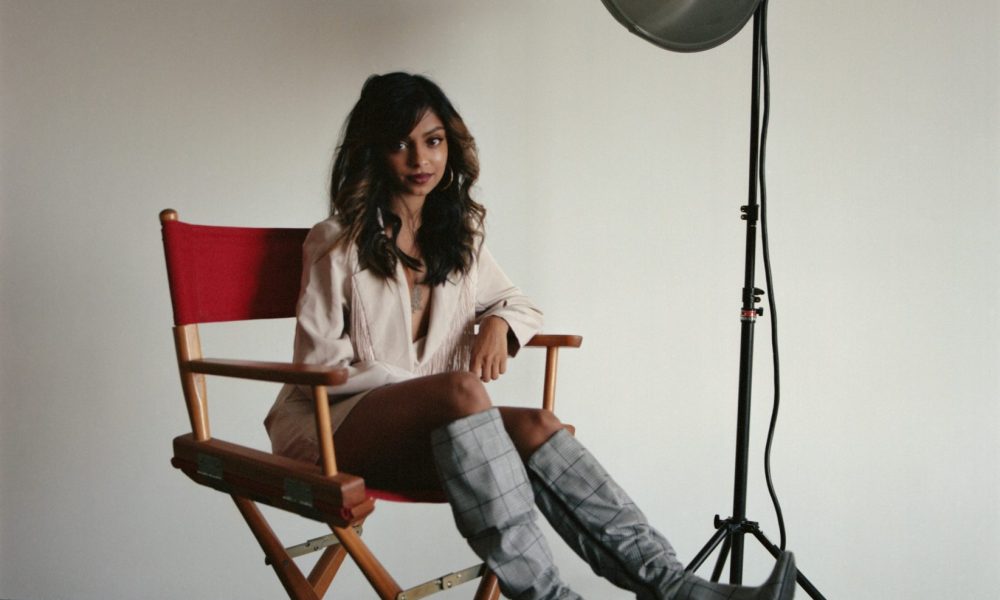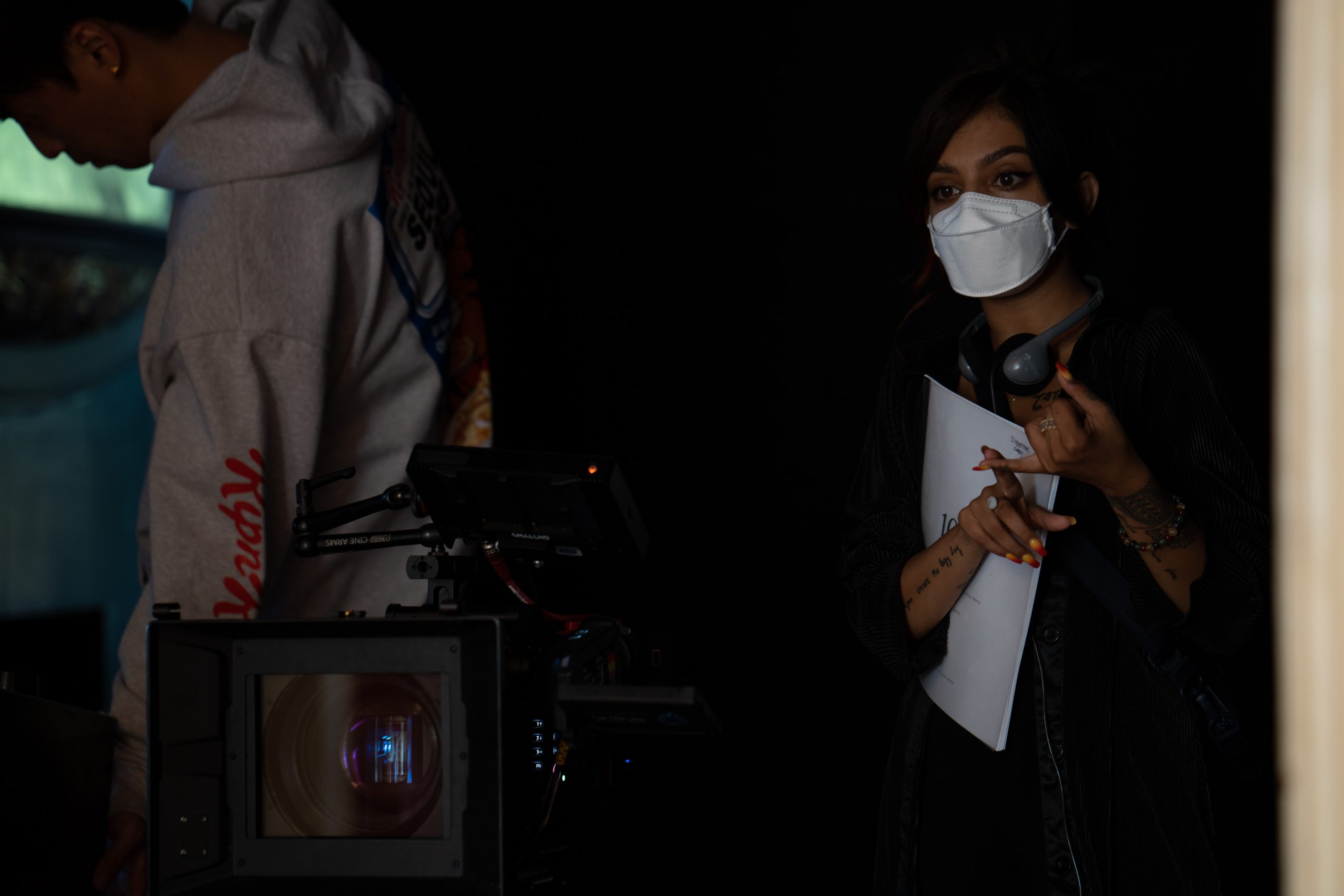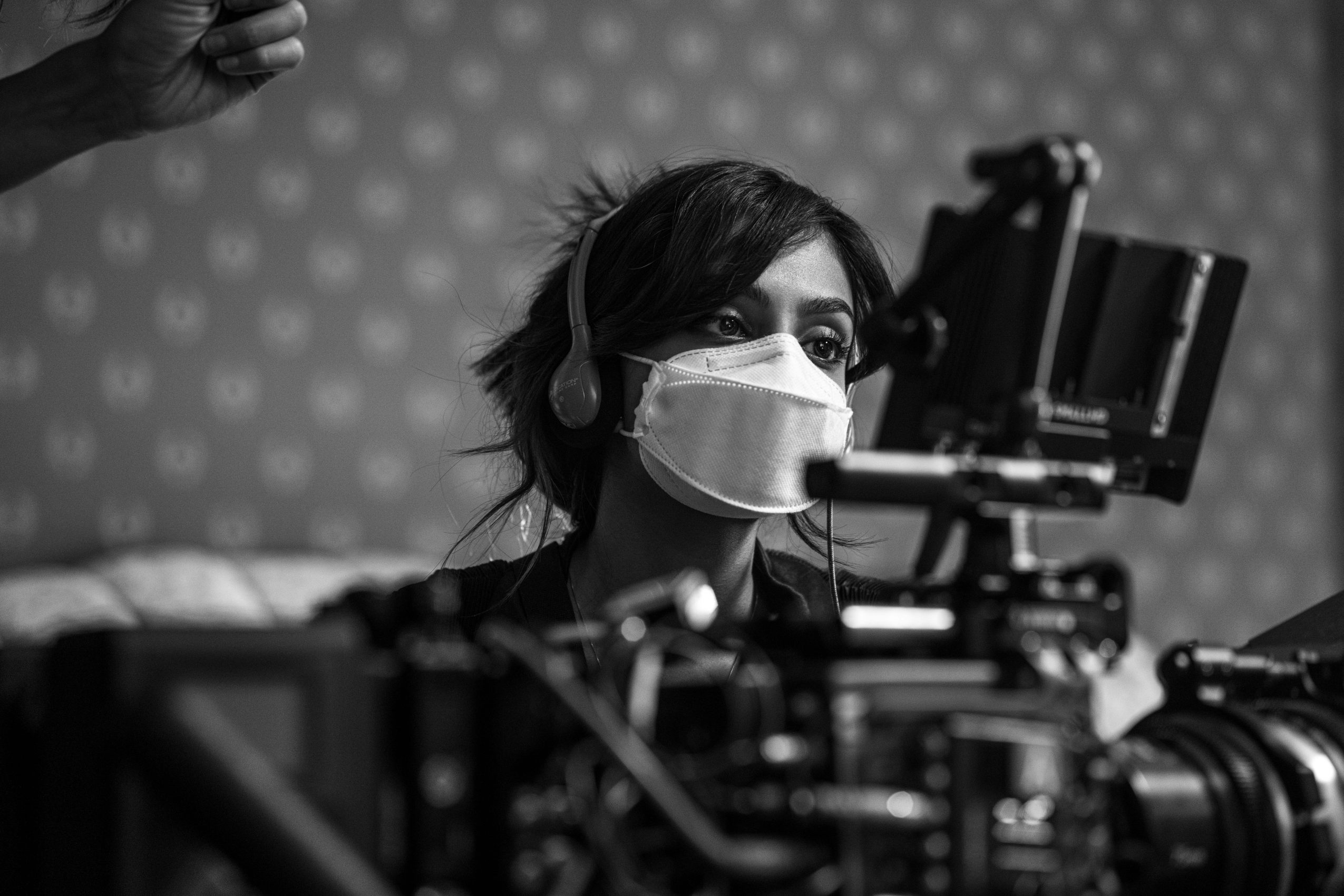

Today we’d like to introduce you to Anjini Taneja Azhar.
Hi Anjini, can you start by introducing yourself? We’d love to learn more about how you got to where you are today.
I became a part of the entertainment industry back in 2011. As a kid, I never felt like I found a passion, and even through my teenage years, I felt like the odd one out. I loved the idea of imagination coming to reality; at age seven, I began to write everything from short stories to scripts for films, no matter how ridiculous those stories were. I stumbled upon a talent agent in 2011 who was visiting my hometown of Seattle at the time. After offering to sign me, I was enthralled by the idea of being a part of the movies- a part of storytelling, no matter what way. So, I signed, and for seven years my dad and I would fly back and forth from Seattle to Los Angeles, departing at 5 AM, auditioning, flying back the same day on the red eye so I could go to school the following morning. Or taking all my schoolwork with me, shooting, and doing it all over again. I have acted in both principal and lead roles in network TV, from HBO to NBC, as well as feature films such as JJ Abrams’ Star Trek Into Darkness and Mark Duplass-produced ‘Young Hearts’ which is now on HBOMax. Although I was living the thrill of a lifetime and having the continuous honour of learning the ins and outs of making films on set, I knew acting wasn’t my end goal. It never was. I was always a writer, a creator, a director. After watching Mr. Abrams do his thing on the set of Star Trek, I knew I would one day have to pivot to directing and step into the shoes of the storyteller that I always wanted to wear.
Finally, I moved permanently to Los Angeles, which now feels like home. Originally, I had hoped to go to community college to save on tuition, then transfer to a film school with prestige- the typical pipeline. I mainted a 3.9 GPA in high school and graduated on the honour roll, but things got a little complicated (as life does), where such expensive schools seemed like a farther and farther reality for me. Additionally, while in college, I was learning to produce and booking jobs for it, and I was learning much less in school than I was on set. I was stuck in a space of debating school, versus work, and what at the end of the day would help me achieve my dreams. I noticed the work I was doing as a producer was the work students who had graduated were trying to get, and the festivals by screenplays were being accepted into were the festivals grads for gunning for. The cherry on top was a moment I had at the wonderful Hollyshorts Film Festival. I screenplay I wrote placed quarterfinalist in their script competition, to which we were awarded with the opportunity to meet with the President of Motion Picture at Kodak, a man named Steve Bellamy. I’m sure he does not remember me since this meeting, but the short minutes he shared with me made a huge impact on my journey. He asked about who I was as a filmmaker, and I told him my debate about school and work and what that means for my path and my voice as a director/ screenwriter. He was very direct, and to the point, which is hard to come by these days. He told me the few filmmakers I earlier named to him as my inspirations did not take the ‘average pipeline,’ and that they built their own. They were trailblazers, all in the name of storytelling. I realized my path ever since starting to act at eleven years old was never normal, and that he was right. I am thankful to Mr. Bellamy for speaking with such directness, seeing through my confusion and muddled thoughts, especially as someone who had only met me for fifteen minutes.
That’s led me to where I am now, plan in hand with no path ahead but the one I am fighting to pave myself. I dropped out of school and learned to produce, working as a line producer, PM, and more, so that when I’m pitching a film I wrote and plan to direct, executives know I understand how money works in the business and have handled it myself. I have been working tirelessly to polish my craft of screenwriting and directing- the learning never stops. I have already written one feature film commissioned by a company under a major agency, worked on commercials, short films that have gone to festivals across the world, and even started my own production company (A Ghost Story Film Company) in hopes to build a portfolio for myself that solidifies my place in the world of storytelling for the screen. I’ve written my second feature film, which I plan to direct, and am pitching to producers and studios now. Additionally, I have three upcoming short films to complete my director’s showcase before fully diving into the deep end of the feature film space.
Can you talk to us a bit about the challenges and lessons you’ve learned along the way? Looking back would you say it’s been easy or smooth in retrospect?
In no way has this journey been a smooth road, and it continues to prove difficult every day. The world of film is highly political and being a brown woman and first gen it becomes increasingly tumultuous to navigate. From face value it seems Hollywood has gotten more diverse, but the decision-makers and the realm of executive decisions in the industry still have a long way to go. Although I am a creative, and my heart lies in the art, I’ve learned to play ball and tackle the politics while assuring I do not lose my integrity and core values.
Nonetheless, trying to work your way up in this industry feels like a game of strategy, trying to kick down door after door that the plethora of gatekeepers work to keep shut. This is the difficult part.
Additionally, being a creative is difficult! I’ve never found the rejection part of being a filmmaker to be hard. Rejection never bothered me, and neither did critical feedback. My parents raised me to be tough and a critical thinker. On top of that, I love the stress that comes with the work. I live for the stakes and the thrill. It’s the creativity that is one of the greatest struggles for me. The best movies are that ones that are fearless: relentlessly emotional, visceral visuals, a true ode to the deepest inner workings of that filmmaker’s heart. Having to navigate the adult world and the industry by myself, I’ve often had to keep my head up and avoid getting lost in my feelings. Sitting down and pulling myself into a space to be vulnerable and honest with myself about the goods and the bads of my life and my emotions is extremely difficult, but that’s what it takes to tell a story with the respect it deserves. The vulnerability of creativity has always been my greatest challenge, and I’m sure it will continue to be. However, at the same time it is a blessing in disguise because when I create it is the only time, I get to allow myself such deep honesty with myself. It is one of the few times I get to feel and process fully. I think, for most artists and their work, this is the case.
I feel very lucky to have a couple inspiring supportive friends who help me navigate these challenges and a family that holds me up even from hundreds of miles away. One phone call with my mother or father will help me realizes that every problem has a solution, and I am capable. Despite the obstacles and challenges, I face, I know I have everything I need to overcome all of it thanks to them.
Thanks for sharing that. So, maybe next you can tell us a bit more about your work?
I have a deep reverence for cinema. I’ve met people who are uncomfortable by it or think that it’s too much, but to me, it’s so much more than just making movies because I think they’re cool. I breathe, sleep, eat, and think cinema. I am not religious, but if I were to have faith in anything, it would be storytelling through film. For this reason, I dedicate my time to directing and writing films. I love dramas or visceral thrillers that pose a critical question to its audience without forcing them to the answer. Films that get you to think, without telling you exactly what that thought process should be; laying out different perspectives and transporting you for a moment, away from your state of being and into someone else’s (a character’s). At this time, I have written one feature film for a production company that was a thriller like this and a multitude of short films. My upcoming feature film is a another ‘quiet’ thriller with dramatic elements that question the system we live in today. The film is called, ‘Our Sins.’ Another upcoming short film I directed is a prideful moment for me. It is co-written by myself and the film’s Executive Producer Victoria Perry. The film is based off Victoria’s experience surviving the tragic Las Vegas shooting. The film is a bizarre, almost-experimental, fever dream of our protagonist’s greatest dreams and nightmares after surviving a mass shooting. Through the film, she confronts many of the moments that served as the building blocks of her survivor’s guilt and finds the strength in herself to overcome survivor’s guilt. The film has many scenes and instances based on truth from Victoria’s experiences. I’m really proud of how we executed this story so unconventionally, avoiding another trauma-glorifying drama by scratching the surface of complex feelings. I’m eternally grateful to Victoria for trusting me with her story in this film.
I grew up on film being an art, an escape, an opportunity to travel, which is vastly different from the industry today which heavily relies on films being ‘products’ of consumerism. Yes, there was always the business aspect, but the work we see now is incomparable to the magic we had years ago. I think what sets me apart from other filmmakers is that I’d like to bring that magic back, even if it’s harder than conforming to the industry’s current landscape just for the sake of selling my film. It’s not a bad thing if a filmmaker chooses to do that, just different. So, in that way, I believe I am different.
I am most proud of my voice as a filmmaker. I have been asked the question of my voice many times, and never have I answered confidently. I think as artists we look for our voice our whole lives. Who we are as storytellers shifts and takes different shape as we flung through life. I’m proud of how each script I write is different from the other. They are true reflections of my voice shifting, and I finally feel like I’m finding the reason answer to the type of storyteller I am.
Are there any apps, books, podcasts, blogs, or other resources you think our readers should check out?
I love reading screenplays as books. They teach me so much, and it’s very telling of a screenplay if you can get lost in it just as you would a book. As artists we are always learning, so screenplays serve both as inspirations and teachers to me. I have the ‘book’ version of many screenplays I love, including Moonlight, Interstellar, and Three Billboards Outside Ebbing, Missouri. I turned the PDFs of another few favourites and had them bound into books (Sicario, No Country For Old Men, Arrival, First Reformed, City of God, etc.). Additionally, I watch at least one film a day. Obviously, they are time-consuming, so it’s hard to fit more than one a day in, but if I have to wake up early in the morning to squeeze one in, I will. Music is a great resource for me as well. I love listening to soundtracks when creating outlines for scripts.
I’m not a big fan of screens (ironically) so I don’t use many apps, but books are great. As of recent, I’ve been limiting my phone use, especially social media, and that’s been helping me both professionally and personally. I love to oil paint as a hobby or when my anxiety is acting act (even though I’m not wonderful at it), so I watch an insane amount of Bob Ross videos. My mother actually recommended a great podcast to me called ‘Last Day.’ It’s a heartfelt and often melancholy podcast, but as someone who struggles with depression and mental health, I’ve learned a lot listening to this podcast and other people’s experiences with similar things.
Anyhow, I also think it’s important to venture into things that have nothing to do with your ‘career’ or whatever your primary discipline is. I love watching documentaries and reading fiction books or photo books about different cultures and places in the world. ‘How To Blow Up A Pipeline’ is great, especially in a time where climate change should be our primary focus as a global community. I think they’re making it into a film now. I read an interesting hybrid book/ photo book about supernatural cats in Japanese folklore and legends, and another called Momento Mori about different catacombs in the world. Random things like these teach me about communities beyond my own which helps ground me and inspire me. In truth, most of my resources aren’t teaching materials, but inspiration. When I am inspired, even if it has nothing to do with my genre of filmmaking, I’m fired up and ready to go. I am hugely obsessed with stop motion and Claymation filmmaking. I can rewatch my favourite Claymation films and stop-motion short films on end and be inspired. Sometimes it’s even a great pick-up. ‘The Maker,’ ‘Head Over Heels,’ and ‘Ma Vie de Courgette’ are some of my favourites.
Contact Info:
- Website: www.anjiniazharfilms.com
- Instagram: www.instagram.com/anjiniazhar
- Twitter: www.twitter.com/anjiniazhar







Image Credits
Neeraj Jain
Idris Erba
Gary Long
Albert L. Ortega











